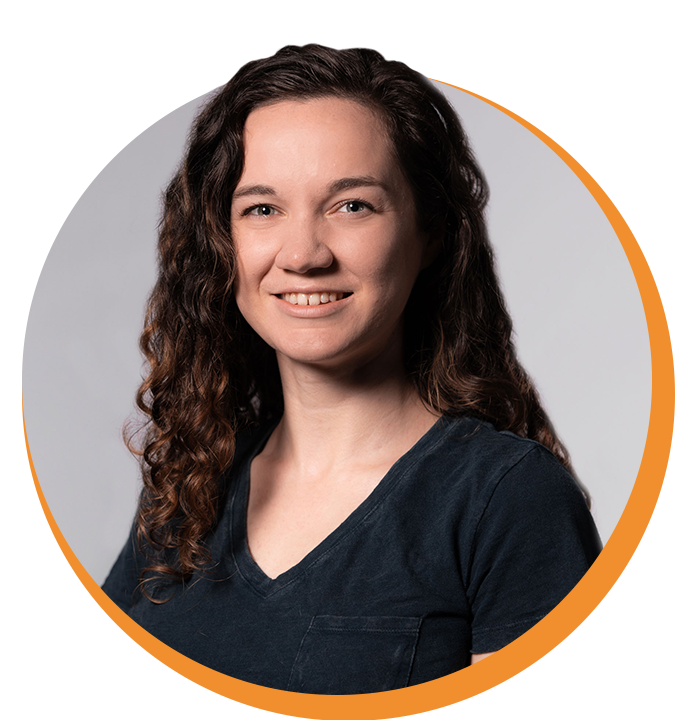Relationships and Science: A Winning Combination for an Oregon Nonprofit

Savannah Aleckson
Events Director/Adjunct Instructor
Read more from Savannah
 It’s true that there’s no silver bullet for ending poverty. But one step on nearly every journey up from poverty is a good job. The data speaks for itself: a mere 2% of adults who work full-time live in poverty, according to 2019 U.S. Census Bureau data. Additionally, working adults are happier and healthier than their non-working counterparts. Klamath Works, a nonprofit located in Klamath Falls, Oregon, has taken to heart the value of work—and discovered a little-known scientific tool for getting clients into jobs that work for them.
It’s true that there’s no silver bullet for ending poverty. But one step on nearly every journey up from poverty is a good job. The data speaks for itself: a mere 2% of adults who work full-time live in poverty, according to 2019 U.S. Census Bureau data. Additionally, working adults are happier and healthier than their non-working counterparts. Klamath Works, a nonprofit located in Klamath Falls, Oregon, has taken to heart the value of work—and discovered a little-known scientific tool for getting clients into jobs that work for them.
Prior to the advent of Klamath Works in 2016, a core group of concerned citizens called over 50 local organizations to get their perspective on issues they were seeing in Klamath Falls and determine what intervention was needed. The overwhelming response was that people needed jobs, and indeed, Klamath Works has had their work cut out for them from the start—23% of the Klamath Falls population lives in poverty, a striking contrast to the 14% poverty rate across the rest of the state of Oregon. In response, Klamath Works embraced the opportunity to help men and women find independence through work. But that doesn’t mean it hasn’t come with a learning curve.
“When we first began Klamath Works, it was all about figuring out how to get people in jobs,” Joy McInnis, Klamath Works Program Director, shares. “As we’ve grown and learned, we’ve found that the ‘getting a job’ aspect was the easy part!” While overcoming basic barriers to employment such as lack of training or a criminal record are undoubtedly important, Klamath Works staff and volunteers discovered there’s so much more that must be addressed to achieve true success in the workplace and beyond. As the phrase goes, “The devil is in the details,” and indeed, it can be those details that can derail a plan that looks great on paper.
How can you anticipate those troublesome details and address them before they cripple a good effort to find employment? For Klamath Works, it all comes down to personal relationships and tailored approaches. “It usually takes more than just a few minutes to figure out why the client is in the position he’s in,” Joy offers. “That’s why it’s so important to have someone to build that rapport with clients, and that’s the role that our job coaches fill. They spend a lot of time communicating with the client.”
It’s through that steady conversation that peripheral obstacles are identified and addressed. If it’s a lack of transportation that would cause the client to be unreliable in his new job, Klamath Works refers him to their bicycle program. If it’s a lack of knowledge on how to manage finances, then the client is recommended the budgeting life skills class.
But what about the less tangibles, like mental health issues or dysfunctional personality traits? It’s in those cases that Klamath Works has found their Structure of Intellect assessment to be key. The Structure of Intellect (SOI) assessment helps the client to, as the ancient Greek aphorism goes, “know thyself.’ The assessment evaluates three key components of intellect: Operations, Contents, and Products.
- Operations: This part of brain function includes the ability to comprehend new information as well as remember and create.
- Contents: This refers to the building blocks of information the brain processes, such as pictures and words. Different minds process different contents better than others, such as sounds for an auditory learner or symbols for a visual learner.
- Products: These are the results of the brain processing information. This includes finding patterns and foreseeing consequences.
The SOI is a research-driven approach to help clients understand the unique way their mind works. While there are many competing models for understanding human intellect, any of them can help someone be introspective about their own skills and attributes. “It’s helpful to know what you think like. Knowing yourself better gives you opportunities to understand what you can work on,” Lavar Moore, SOI specialist at Klamath Works, shares. Lavar tells about one client whose assessment revealed that, due to a traumatic brain injury and a subsequent struggle with addiction, he was lacking in judgment and clarity. This honest evaluation opened the door for him and the caring staff at Klamath Works to develop a game plan so that he could practice better discernment and make healthier choices in difficult situations. More than a simple handout of material assistance or a job application coldly passed across a counter, this strategic intervention empowered him with tools to flourish.
The SOI is more than a simple personality test. It’s an in-depth, thorough evaluation of how the client processes information, and as such, it requires a significant amount of training in advance. Any organization that uses the assessment must participate in a week-long in-person training and be approved by SOI Systems for basic certification. The written assessment that the client takes—typically over three hours to complete—is administered by a certified trainer and then fed through software that compiles the information to create a client profile. From there, a trainer with advanced education in SOI implementation is required to analyze the data and make recommendations for the client accordingly. All in all, there was about a $5,000 start-up cost for Klamath Works to integrate the SOI into their programs.
There’s certainly an implementation cost that accompanies the SOI. However, this data-driven approach coupled with heartfelt relationships can drive real solutions to difficult problems. Eric, another success story from Klamath Works, demonstrates this well. Homeless with mental health issues and a criminal record, his job prospects were dismal. “Eric came in with nothing, but he was ready to work and receive information,” Lavar shares. Though he was down on his luck, he enthusiastically gleaned from every resource offered, from the life skills classes, to the one-on-one job coaching, to building relationships with Klamath Works staff—and it’s paid off. As Lavar says, “Eric is back to work and loved by his employers, he’s stable and paying bills, he’s paying off debt.” Recently, Eric approached his mentors-turned-friends at Klamath Works to seek advice on whether he should ask for a raise at his job that he was steadily improving at and thoroughly enjoying. Through the sound advice and reassurance given by his trusted job coach, Eric was able to ask for a raise—and he got it!
What advice would Joy and Lavar share with other organizations trying to help the poor find jobs in their communities? “Remember that it’s on an individual basis,” Lavar emphasizes. “Poverty looks different for everyone—sometimes it’s a lack of skills, sometimes it’s a lack of childcare, sometimes it’s addiction, and so on. There is no blanket solution [to get people in jobs] for root causes so varied.”
That’s why Klamath Works emphasizes the importance of tailored approaches based on each client’s individual context. “It just comes down to a one-on-one relationship so that you have a better idea of what’s going on. Every situation is different,” Joy reminds. A willingness to dig deep into the specifics of a person’s situation, coupled with a compassionate and understanding heart, is what makes the difference between cold, sterile charity and life-changing help. And, as Klamath Works has found, coupling scientific approaches with that warm relationship can be a winning approach.
Have a question about how Klamath Works has integrated the Structure of Intellect assessment into their programs? Contact them through the True Charity Network Member’s Directory. For more information about the True Charity Network, visit truecharity.us/join.



